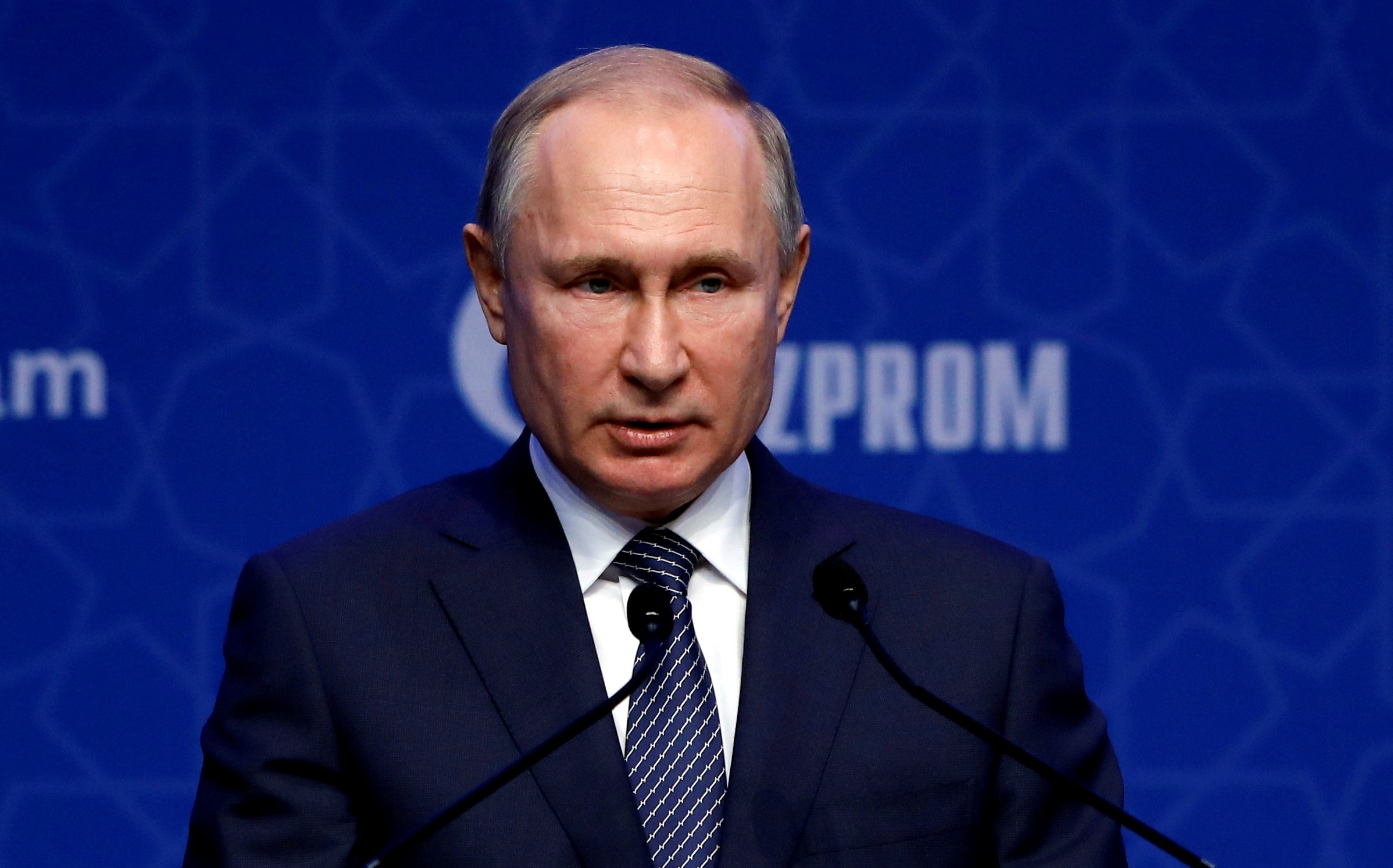Vladimir Putin claims Russia is not using gas as a weapon amid Europe’s energy crisis
Moscow has been accused of using gas as political leverage

Your support helps us to tell the story
From reproductive rights to climate change to Big Tech, The Independent is on the ground when the story is developing. Whether it's investigating the financials of Elon Musk's pro-Trump PAC or producing our latest documentary, 'The A Word', which shines a light on the American women fighting for reproductive rights, we know how important it is to parse out the facts from the messaging.
At such a critical moment in US history, we need reporters on the ground. Your donation allows us to keep sending journalists to speak to both sides of the story.
The Independent is trusted by Americans across the entire political spectrum. And unlike many other quality news outlets, we choose not to lock Americans out of our reporting and analysis with paywalls. We believe quality journalism should be available to everyone, paid for by those who can afford it.
Your support makes all the difference.Vladimir Putin has said Russia is not using gas as a “weapon” and insisted he was ready to help Europe amid its energy crisis.
The Russian president made the comments as the European Union called an emergency summit to help tackle skyrocketing prices.
The International Energy Agency (IEA) on Wednesday for a tripling of investment in renewables to steady markets and fight climate change, the Reuters news agency reported.
Europe’s gas crisis has highlighted the fact that Russia accounts for a third of the region’s supplies, prompting European politicians to blame Moscow for not pumping enough.
But Putin told an energy conference in Moscow that the gas market was not balanced or predictable, particularly in Europe.
He also claimed that Russia was meeting its contractual obligations to supply clients and was ready to boost supplies if asked by European leaders.
Putin added: “This is just politically motivated chatter, which has no basis whatsoever.”
As economies have recovered from the Covid pandemic, demand for energy has surged and seen the prices of oil, gas and coal increasing significantly.
At the same time, Russia and Europe have been embroiled in a dispute over a new pipeline, Nord Stream 2, to supply Russian gas to Germany.
The pipeline is built but awaits approval to start pumping, amid opposition from the US and some European nations that fear it will make Europe even more reliant on Russia.
Some European politicians say Moscow is using the fuel crisis as leverage, a charge the Kremlin has repeatedly denied.
The European Commission outlined measures on Wednesday that the 27-nation EU would take to combat the energy crisis, including exploring joint gas purchasing.
EU countries are scheduled to hold an extraordinary meeting on 26 October to discuss the price spike.
“The only way to fully decouple gas from electricity is no longer to use it to generate power," said the EU energy policy chief, Kadri Simson.
“This is the EU’s long-term goal, to replace fossil fuels with renewables.”
The Paris-based IEA said the world had to invest $4 trillion (£2.9 trillion) by 2030 in clean energy and infrastructure – three times the current levels – to achieve net-zero emissions and limit global warming to 1.5C by 2050, the target of the 2015 Paris climate accord.
“The world is not investing enough to meet its future energy needs,” it said in a report, published ahead of the United Nations Cop26 climate change conference in Glasgow, Scotland, which starts on 31 October.
Additional reporting by Reuters
Join our commenting forum
Join thought-provoking conversations, follow other Independent readers and see their replies
Comments